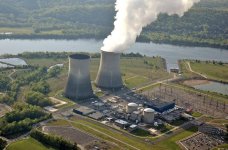Highlight: Where did I say it was a prerequisite? There's also a difference between 'taking a photograph' and 'documenting a subject'. A subject is almost invariably too complex to be documented in a single picture.
...
If there is no room for opinion, then it cannot creep in. Yes, it is possible to record all kinds of things, such as photo-finishes, though this actually supports my argument that all 'documentation' is partial and limited: a photograph of an instant at the end of a race most certainly does not 'document' the whole race. What would it mean to 'document' a river (or any other subject) without any viewpoint? How could you do it?
Cheers,
R.
Okay, I think I'm starting to see the issue here, and why we seem to be arguing past one another.
Please share your definition of "document".
I'm taking the term to mean, simply, "make a record". By my definition to make any photograph of anything at all is to document it. Therefore it is evidently clear, again by my definition, that in the very act of taking a picture you are, strictly speaking, documenting the subject. You may not be documenting it
well, or
interestingly, or
objectively, or
artistically, but you are, in fact, documenting the subject because you are producing a record of it. Whether you personally feel that the record is relevant or interesting, or worthwhile is irrelevant to the discussion as to whether a record has been, in fact, produced.
Also, you seem to keep asserting that it's impossible or impractical to produce photography without bias, or pointless to do so...then you ask for any example...and when it's provided, you dismiss it as not being relevant to the task of
producing photography with a political bias. That's some egregious application of circular logic.
Obviously, the examples we've been providing you have no political motive...that's the whole point. You asked for examples of how one might use photography to document a subject without such a bias. It makes little sense to then criticize those examples for posessing the very qualities which made them good examples to fill the original request.
Clearly, if your purpose is to produce images with bias, producing images without bias will be counterproductive. That's like saying you want to get into street photography but only do so by avoiding all traces of civilization.
including, even, your rather odd example of a chef giving a recipe for a dish he doesn't like. Why would he do this? HOW could he do this? Do you cook? Have you ever written any cookbooks? Or indeed read any books by or about chefs?
He would do this out of a desire to share information about cooking overall, to then allow people to make their own decision about whether they like the dish or not, regardless of his personal tastes.
I'm not the most handy in the kitchen, but I am a trained beer taster. In this frame of reference, if I were doing a book or some other documentary of various beer styles, I'd certainly do my best to accurately and impartially describe every style of beer, regardless of my personal tastes. If I were getting still life shots of each style, in its appropriate glassware, I wouldn't just get to a Belgian witbier and because I personally don't really care for the style, intentionally photograph it any differently, or allow my opinion to negatively impact my writing about it. This is because I'd want the viewer/reader to have as much impartial, accurate information as possible in order to make their own decision and form their own opinions.
If I was writing a piece for a beer magazine about the recent popularity of using rye as a brewing adjunct, and how it's making the world of craft beer more interesting, of course I'm going to inject bias, because that piece has a completely different purpose; I'm trying to convince the reader to, at very least, go out and give rye beers a shot, if not just convince them outright that rye beers are good.
Yes, it is possible to record all kinds of things, such as photo-finishes, though this actually supports my argument that all 'documentation' is partial and limited: a photograph of an instant at the end of a race most certainly does not 'document' the whole race.
In this case, the whole point of the photo record is to document the end of the race, which, I would think many would agree is the most important part of any race. A photo of the beginning of a race would be intended to document that part of it, which, while it may not be as significant as the end, is no less able to be documented, as ojectively as possible, by a photographer.
In any event, that seems like a slippery slope argument. If you say that a photo-finish is a partial record, then a series of photos of the whole race is equally partial because you didn't document every runner's prep workout...or their months of training...or their introduction into running...or their parents, grandparents, etc. who all contributed to their genetics...and if that's the point that's being argued, I think it's a bit ridiculous to legitimately argue that there is some sort of political motive behind every photo because it does not capture the entire existence of the universe from the beginning of time within it's frame.


